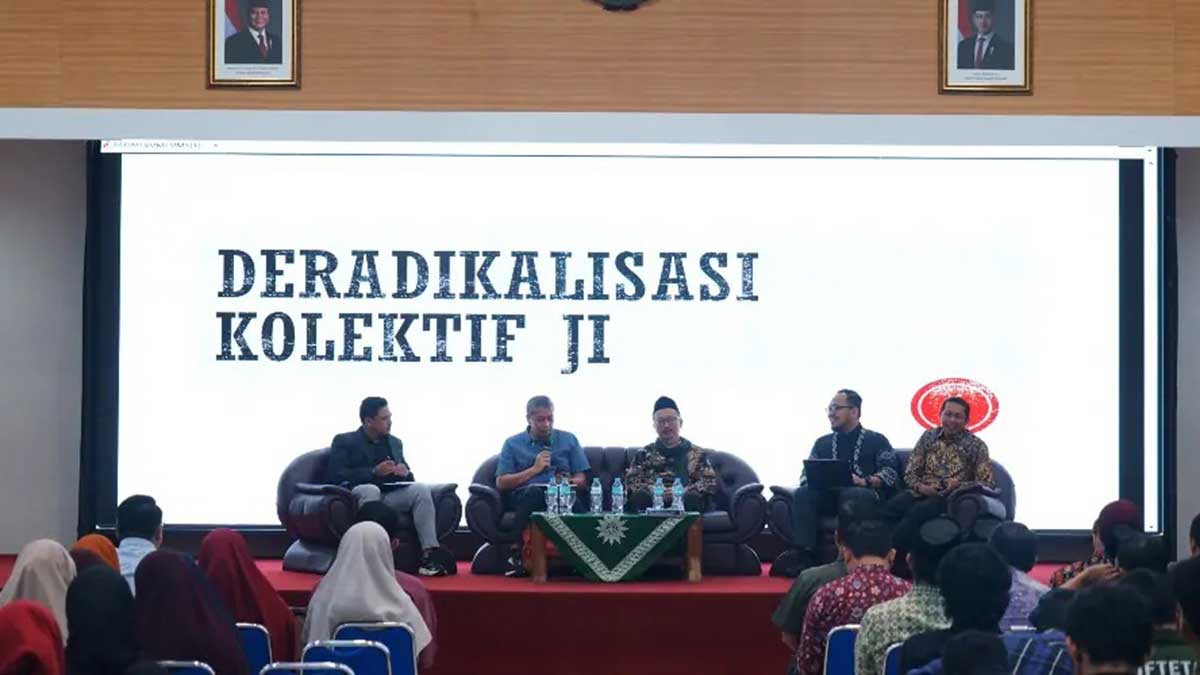To combat extremism among students and youth, the Indonesian Police’s Special Detachment 88 (Densus 88) partnered with Universitas Muhammadiyah Surabaya to host a book discussion on JI: The Untold Story, authored by the Head of Densus 88, Inspector General of Police Sentot Prasetyo. The book explores the history of Jamaah Islamiyah (JI), from its formation to its eventual disbandment. This event is part of a broader literacy initiative aimed at countering radical narratives, which Densus 88 is actively promoting through university collaborations. The initiative seeks to provide factual counterpoints to ideological extremism.
Vice Rector for Research, Collaboration, and Digitalization at UM Surabaya, Dr. Radius Setiyawan, stressed the importance of studying the history of radicalism objectively and scientifically. He explained that JI’s dissolution should not be seen purely as a security matter but as part of a broader socio-religious dynamic. By examining these issues critically, academic communities can create more enlightening and constructive narratives. Dr. Setiyawan encouraged students to engage in historical inquiry to understand the evolution of radical movements.
From Densus 88, Police Commissioner Joko Dwi Harsono emphasized that the book serves as a tool to balance the ideological messages of radical groups. He urged that campuses remain open spaces for objective, fact-based discussions on terrorism. Commissioner Harsono also expressed hope that patriotism would grow among students and youth. He noted that this kind of awareness is key to preventing the spread of extremist ideologies that conflict with national values.
Former Fatwa Council member of JI, Ustadz Imtihan, joined the discussion to reflect on the importance of peaceful preaching. He shared that many once believed in violent struggle, but eventually realized Islam promotes peaceful propagation. Terrorism researcher Dr. Solahudin elaborated on JI’s ideological transition from traditional militancy to peaceful nationalism. Other experts, including Dr. Thoat Stiawan and legal scholar Satria Unggul Wicaksana Prakasa, analyzed the topic from Islamic studies and national policy perspectives, respectively. The discussion, attended by hundreds of students and faculty, demonstrated a strong academic interest in addressing radicalism and terrorism.
Alexander Jason – Redaksi



